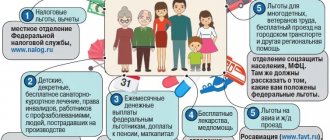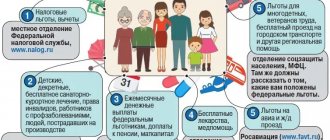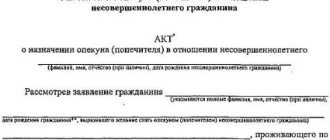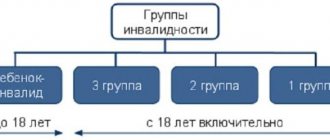A separate layer of society lives on the territory of the Russian Federation, namely the incapacitated population or the disabled. These persons are divided into three separate categories, among which those of the first group deserve special attention, since they are completely limited in their capabilities due to health. They are provided with guardianship over a disabled person of group 1, while many wonder how much they pay for such actions to care for a citizen.
In practice, it is necessary to provide full guardianship over these persons without the right to official employment, which makes it possible to receive certain privileges from the state for caring for a child or a more mature disabled person. In this case, it is necessary to study in detail what benefits are provided for guardians of incapacitated disabled citizens.
Guardianship of a disabled person from the point of view of the law
Guardianship is part of family law and, accordingly, is regulated by the Family Code of the Russian Federation. This law prescribes duties with rights in relation to both the guardian and his ward. In addition, general points on the topic of guardianship and trusteeship are presented in the Civil Code of the Russian Federation.
Experts add the following: if the matter concerns guardianship of a person with group 1 disabilities, it is worth additionally taking into account the norms of the Government of the Russian Federation No. 343 of June 4, 2007 and the provisions of Federal Law No. 48 of April 24, 2008.
The legislative framework
The norms of Art. 36 Civil Code and Art. 15 of the Federal Law establishes the basic regulations regarding the rights and obligations of guardians, incapacitated and partially capable individuals.
Trustee's rights
Current laws establish the following rights of a trustee of a disabled person:
- the right to act as a legal representative of the ward when applying to any state and municipal institutions;
- the right to receive assistance in the provision of medical, pedagogical, legal and social assistance in accordance with 442-FZ of December 28, 2013;
- give permission to deposit the ward's financial resources into bank accounts, provided that these accounts are insured in accordance with 177-FZ of December 23, 2003.
It is important to distinguish between a guardian and a trustee. A guardian is appointed specifically for incapacitated disabled people, that is, those who cannot understand the meaning of their actions. And trustees - in relation to disabled people with limited legal capacity, that is, patients with alcoholism, drug addiction or who gamble a lot (often) - Part 1 of Stat. 30 GK.
Rights of the incapacitated
Persons incompetent, as well as those limited in legal capacity, have the following rights:
- the right to use the property of the guardian with his consent;
- the right to have one’s opinion taken into account when the guardian makes transactions to dispose of property;
- the right to protection of property rights, carried out in accordance with Art. 22 Federal Law.
Understanding guardianship and its types
Guardianship in simple words is when one capable citizen represents the interests of another person who, due to limited capabilities, is recognized as incompetent and in need of comprehensive assistance.
In general, guardianship is much broader and involves not only caring for a disabled person who is practically incapable of any independent actions. In fact, the guardian still has to protect his interests, if necessary.
Guardianship consists of:
— providing care for those in need of group 1;
— management of property belonging to a disabled person, as well as ensuring its safety;
— organizing conditions and everything that may be needed to maintain the health of a person under care in group 1.
As for the forms (types) of guardianship, there are not many of them. This is patronage, guardianship and full guardianship. Let's look briefly at each type.
1) Patronage
most often implemented if the case concerns a legally competent adult citizen, and the parties enter into an agreement. But this form of guardianship is not excluded in relation to disabled people with group 1, if they are unable to fulfill their duties and represent their rights.
2) Guardianship
can establish if the fact of limited legal capacity of a person is recognized in court. Or persons aged 14-18 years are considered. It is worth considering an important point: guardians have the right to give consent to the execution of transactions in which a disabled person is involved, but they should not carry out transactions on behalf of the ward. Simply put, the guardian only approves the fulfillment of the duties and rights of the ward.
3) Guardianship
is fully applicable if a person is incompetent (this is recognized by the court) or is in fact such, that is, the age of the ward plays a role here - up to 14 years.
Important
! The guardian of a disabled person of group 1, as the legal representative of his interests, is provided with a full set of duties and rights of the person under guardianship.
In what case is it necessary
In some cases, it is impossible to do without registering guardianship. This measure of support for people with disabilities is necessary :
- If a person has completely lost the ability to take care of himself.
- A disabled child.
- In case of partial loss of legal capacity (guardianship is appointed).
Important! A person can only be declared legally incompetent by a court decision.
As a rule, the need for guardianship arises when a person is deprived of the opportunity to independently prepare food, visit shops and pharmacies, and also travel to sanatoriums and rest homes. Providing sanitary living conditions is also difficult for such people, so they are almost always interested in being helped by strangers or relatives.
Considering the fact that a disability group is not assigned until the age of eighteen, a child with physical or mental disabilities, regardless of their severity, also needs a guardian.
Who can be a guardian of a disabled person?
The candidate must meet a number of requirements, and the family connection between the ward and the potential guardian is of great importance. In general, the identity of the guardian must be subject to the following conditions:
- full legal capacity, that is, reaching the age of majority in order to fully legally bear responsibility for oneself (first of all);
- age up to 60 years (preferably), since pensioners often need help themselves and guardianship authorities are in no hurry to approve guardianship for them (there are no prohibitions in this regard in the law);
- absence of previous facts of deprivation of parental rights or cancellation of adoption, as well as offenses, addiction to alcohol or drugs, convictions for intentional crimes against health and life;
- non-involvement in same-sex relationships, that is, relationships can be, but only with a representative of the opposite sex;
— the presence of moral principles and qualities that will be welcomed by representatives of the guardianship authorities.
Plus, the health status of the guardian must be taken into account, who will have to undergo a medical examination before registering his new status. Experts, focusing on Government Decree No. 117 of February 14, 2013, do not allow, for example, citizens with:
- tuberculosis;
— disability of 1st group;
— substance abuse, drug addiction, alcoholism;
— oncology in stages 3 and 4 or stages 1 and 2 (if the candidate refuses treatment);
— behavioral and mental disorders until the termination of medical supervision;
- illnesses of a chronic and infectious nature, if complete recovery is not recorded.
Additionally, the future guardian must confirm that he has:
- owning a living space that meets sanitary and other standards (in any case, the new tenant should be comfortable in the space);
- a certain level of income that allows you to take care of the ward (certificates from work and other required documents are attached).
Important
! When considering a request, the guardianship and trusteeship authorities must take into account the opinion and desire of the potential ward, as well as his relationship with the guardian (for example, are they relatives or close friends, etc.).
Regional programs
A certain number of benefits operate at the regional level.
For example, according to the terms of such a regional program in Moscow, families raising supervised children are provided with:
- Compensation for the caregiver of a child with a disability.
- Reimbursement of utilities.
- Compensation for education.
- Financial assistance for a full-time student.
- Compensation for an abandoned or abandoned child.
Trustees in Moscow can also use the following in-kind privileges:
- 50% discount in case of payment for preschool education;
- free use of public transport;
- the opportunity to receive 2 meals a day in educational institutions.
In addition, supervised children can count on free medicine (up to 3 years), free baby food and textbooks.
Rights and responsibilities of a guardian
Current legislation strives to respect and protect the interests of wards, therefore it gives the guardian specific responsibilities and rights. In particular, the person receiving guardianship automatically undertakes to guarantee to the ward:
— protection of property rights;
- implementation of the benefits provided to him;
— payment for various payments, taxes, etc.;
— acceptance of the inventory of property transferred in favor of the person under the care of third parties;
— provision of personal hygiene products, food, medicines and everything necessary;
- care, health care and timely organization of treatment measures, seeking medical care at the hospital, if necessary;
— submission of reports on expenses to the guardianship authorities.
At the same time, the guardian is given the right to control the actions of the ward and to use his funds (of course, in the interests of the person to whom the money was intended). Finally, during a dispute or trial, the guardian is the legal representative of his ward.
Who can get a negative answer?
Citizens are not allowed to be guardians based on two criteria: moral and physical. In particular, a person will be denied guardianship if he:
- has a criminal record (outstanding) for guilty acts directed against life or health, including a case filed against a person;
- has a criminal record for offenses against citizens, their honor and dignity;
- other moral qualities of a possible guardian that raise doubts.
Medical criteria
Supervision of a person under guardianship requires good health, since living and supporting a disabled person is not easy. Therefore, the legislator imposes health requirements on the guardian. In particular, guardians are not allowed to be:
- incompetent;
- partially incapacitated;
- who have not completed training for guardianship;
- those suffering from cravings for alcohol and drugs;
- members of the PND.
Guardianship of a person with a group 1 disability creates an obligation for the guardian to support him and maintain his normal life.
Guardianship procedure
To acquire the status in question, the applicant must prepare and submit to the authorized authority:
— autobiography;
- application (written on the spot);
— marriage certificate (copy), if available;
— a copy of the homeowner’s document or an extract from the house register;
— confirmation of completion of special training (usually special courses are needed if the ward is in a difficult condition);
- consent of all family members, starting from the age of ten, for a new person to live with them.
Plus, they ask for information:
- no criminal record;
— from doctors about the applicant’s good health;
- from the place of work about the salary for the last year;
— on receiving pension payments (for pensioners);
— on the compliance of housing with technical and sanitary standards.
Important
! If the potential guardian is not employed, he will have to provide other proof of income in a certain amount.
What benefits are entitled to a disabled child?
The state provides several types of social support to such families. Parents can apply for a monthly social pension for their child; its amount in 2021 is 13,804 rubles . This pension is subject to annual indexation.
Other benefits are also provided:
- monthly cash payment that compensates for travel on transport, receipt of medicines and expenses for sanatorium treatment;
- provision of housing and land.
Loan online Web loan online, Persons. No. 005556
from 0.83% per day
First loan 0%
up to 30 thousand
7 – 30 days
Take out a loan
Benefits for guardians of disabled people of groups 1, 2 and 3
Now let's look at some of the preferences that are provided for those caring for incompetent citizens with disabilities. To be more precise, the guardian of a disabled person of group 1 can travel with him free of charge on public transport or to the sanatorium (and back) as an accompanying person.
But in the case of guardianship of disabled people of category 2, there are no relaxations. The same applies to citizens with group 3. By the way, it is quite difficult to obtain guardianship over the latter, since this status is considered able-bodied. But perhaps the guardian will achieve the right to manage the payments and pension of the disabled person by submitting reports to the guardianship authorities (the funds must be directed exclusively to the needs of the ward).
Several other points on the topic are noteworthy, namely:
— if an officially unemployed guardian takes care of a ward who is over 80 years old, he can arrange an additional payment of 1,200 rubles through the Pension Fund (the amount is paid together with the disabled person’s pension);
— a 50% discount on the payment of utility bills applies only to a citizen with disabilities, and the rest of the family members living with him pay the full cost.
How much do caregivers get paid?
Payments to persons who decide to become guardians have not been indexed for more than 10 years (since 2008) and today amount to:
— 1200 rubles, if the ward received the status of a person with disabilities during his life;
— 10,000 rub. required to care for a disabled child or a disabled child (only parents or guardians, and the unemployed).
Important
! If a relative is caring for a disabled citizen, 10,337 rubles are charged. social pension. If a relative does not have a job, he is entitled to a payment equal to 60% of the minimum wage.
Grounds for receiving benefits
Guardianship of both an adult and a disabled minor implies the provision of assistance to such a person free of charge.
But the legislation provides for a number of cases when an assistant is paid money for such support. The full list of benefits and compensation paid to citizens caring for people with disabilities is specified in Resolution No. 343.
For example, if the parent of a minor child cannot work due to the need to provide him with constant care, then the law requires a payment of 60 percent of the minimum wage.
Decree of the Government of the Russian Federation dated 04.06.2007 N 343 “On making monthly compensation payments to non-working able-bodied persons caring for a disabled person of group I (with the exception of disabled people since childhood of group I), as well as for the elderly who, upon conclusion of a medical institution, need constant outside care or those who have reached the age of 80"
Who is eligible to become a trustee?
A citizen who wishes to become a trustee of a person with disabilities must meet a number of requirements specified at the legislative level. As a rule, when determining who will take care of such a person, close relatives are first taken into account.
Disability in Russia: numbers and facts
All other citizens to obtain this status must meet several mandatory requirements:
- Reach the age of majority.
- Have no criminal record.
- Be fully capable.
- Do not see a neuropsychiatrist.
- Do not be limited in parental rights.
All guardians who also apply for various social benefits must take into account the fact that, due to guardianship, they simply do not have enough time to work and earn a living in this way. Therefore, if a person needs a higher income, then it is not worth registering for such a social status.
Disability in Russia: numbers and facts
When receiving an application from an applicant, the guardianship officer must take into account the fact whether the applicant has a realistic amount of free time that he can spend on providing the disabled person with all the care he is entitled to.
Important! The first group of disabilities presupposes the inability of a person to take care of himself independently, even with basic things, so his guardian must always be nearby, which makes any kind of employment other than guardianship impossible.
Involuntary revocation of guardianship
To trigger the removal of caring responsibilities from a carer, a number of steps must be taken. A person caring for a needy person can do this himself. And if we talk about forced termination of guardianship, this action occurs due to the guardian’s violation of his obligations to the ward.
Let's say a citizen spends money on himself, and not on the person under his care, and does not submit a report to the competent authorities. Or the guardian made some kind of transaction with the property belonging to the ward. Situations may vary.
Be that as it may, if there is evidence of non-compliance with the rights of the ward, any person can contact the guardianship authorities with a complaint and begin the procedure for depriving the guardian of his powers.
A special commission will verify the veracity of the appeal and, if violations are detected, will bring the culprit to administrative or criminal liability. Also, this person will no longer receive guardianship status.
How to cancel guardianship
The main reasons for canceling guardianship are established in Part 1 of Art. 29 Federal Law:
- if the guardian (trustee), or the ward himself, has died;
- the period of validity of the guardianship agreement specified in the act of appointment has expired;
- if the guardianship authority has released the guardian from performing duties due to dishonesty, spending the ward’s property in his own interests, etc.;
- in cases specified in Art. 40 of the Civil Code - for example, if the court made a decision to recognize an incompetent citizen as capable;
- the guardian's own wishes;
- conflict of interest;
- significant violation by the guardian of the rules for the disposal of movable and immovable property of his ward;
- non-compliance by the guardian with the rights of the ward, including the implementation of guardianship for selfish reasons.
So, it is possible to arrange guardianship over a disabled person if he is incapacitated, and guardianship – if he is of limited legal capacity. As a rule, the composition of payments is as follows - for care and for paid performance of obligations under the contract. If guardianship is established over a disabled child, a lump sum payment is also due.
Who has the right to obtain guardianship
Not every citizen can obtain guardianship. It must meet certain criteria. All requirements for a future guardian are established in the laws of the Russian Federation.
Requirements for the identity of the guardian
Naturally, before obtaining guardianship, a potential guardian must prove his worth as an individual.
Important! Only adult citizens of the Russian Federation have the right to become a guardian.
Those wishing to take custody of an incompetent person are checked for the presence or absence of a number of factors:
- Reasons for refusal: presence of socially dangerous relatives (drug addicts, alcoholics, criminals), problems with the law.
- Desirable: constant income, no bad habits.
To prove his right to obtain guardianship, a citizen must present a reference from his place of work.
Caregiver's health: criteria
In addition to material security and social reliability, there is another parameter for assessing the future guardian. This is his health.
The medical criteria for assessing a person wishing to take care of an incompetent person include the following parameters:
- no dependencies;
- mental health;
- capacity;
- absence of serious physical illnesses;
- healthy psyche.
Additional parameters for assessing persons wishing to become guardians
Not every person with good health and a stable psyche can obtain guardianship. There are a number of additional parameters for assessing civil reliability. They are sometimes even more important than physical health.
Additional assessment criteria include the following requirements:
- availability of real estate of sufficient area;
- the ability to provide the ward with a separate room;
- economic situation of the future guardian;
- availability of a source of permanent legal income.
To confirm all this, the future trustee must independently collect all the necessary certificates.
How much pay?
Due to such a great responsibility when receiving guardianship, this citizen has the right not to refuse payment for his services. If his ward has 1 group, then he has the right to count on the following amounts:
- if a person received his disability in childhood, then the amount of payments will be 5,500 rubles ;
- if the disability was acquired in subsequent years, then the amount of compensation for the guardian will be only 1200 rubles .
But when formalizing his obligations, the guardian must take the ward to live with him, or in extreme cases, with the permission of the guardianship authorities, move to live with him. Therefore, he will be able to enjoy some of the benefits of a disabled person:
- receive a discount or compensation for housing and communal services in the amount of 50%;
- arrange free vouchers and travel for one accompanying person to the sanatorium;
- receive housing tax exemption;
- receive discounts when paying transport and land taxes if the vehicle meets the established requirements and is used to transport a disabled person;
- receive labor benefits;
- get 50% discount on a landline phone
- when taxing received income; receive an increased tax deduction of 6,000 rubles
- ride free of charge on public transport as an accompanying person with a disability.
If a disabled person has only the second group, then payments to his guardian will not be assigned. However, he will be able to enjoy some benefits:
- You can receive social services free of charge.
- Travel as an accompanying person on public transport will be free.
- You can get a discount or compensation of 50% for housing and communal services.
- You can get some benefits when getting an education .
These benefits and payments apply to all guardians of disabled people.
But a group is not assigned to children, but rather the presence of a disability is simply determined. Therefore, the amount of payments for such a guardian will be 5,500 rubles until the child becomes an adult. But even after this, the payment will not change, since the same amount is provided for those who have been disabled from an early age.
In addition, guardians of children with disabilities have the right to claim the following benefits:
- to obtain housing or receive subsidies for its purchase;
- 50% discount or compensation on housing and communal services;
- apply for a plot of land for a garden or individual housing construction on a non-gratuitous basis;
- have all other benefits that are provided for guardians of sick people with group 1.
Please note that such payments are only available to non-working persons, and they must be able to work. If you are registered on the stock exchange and receive a corresponding benefit, you are not eligible to claim this payment.
But the ward himself can assign a reward to the person who takes care of him from his other income, for example, from renting an apartment or other property. You can learn more about this from the presented video.










